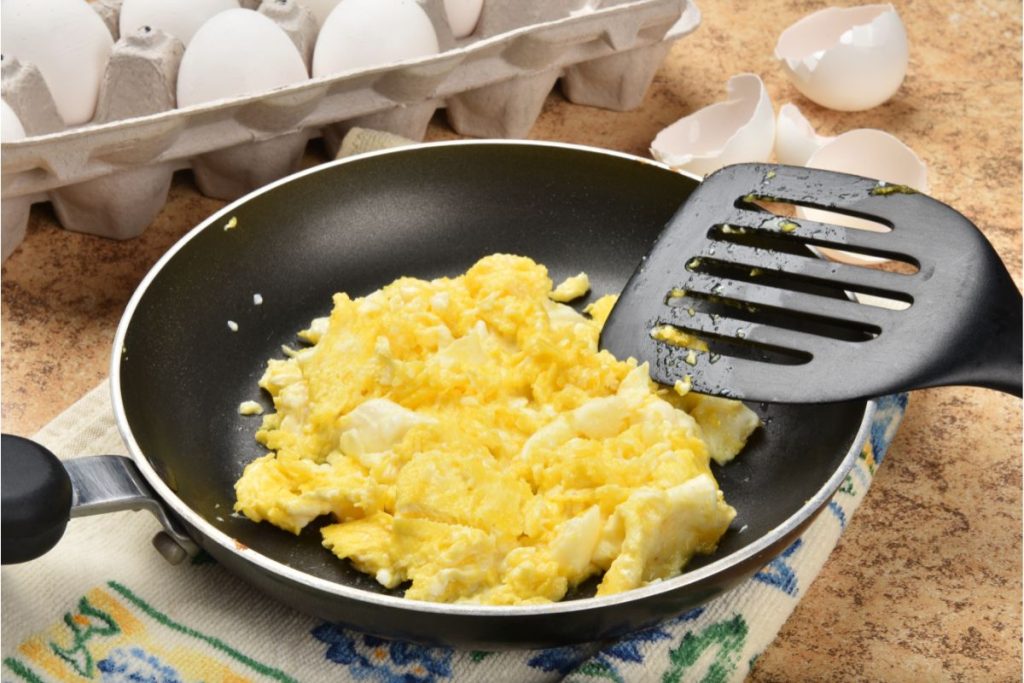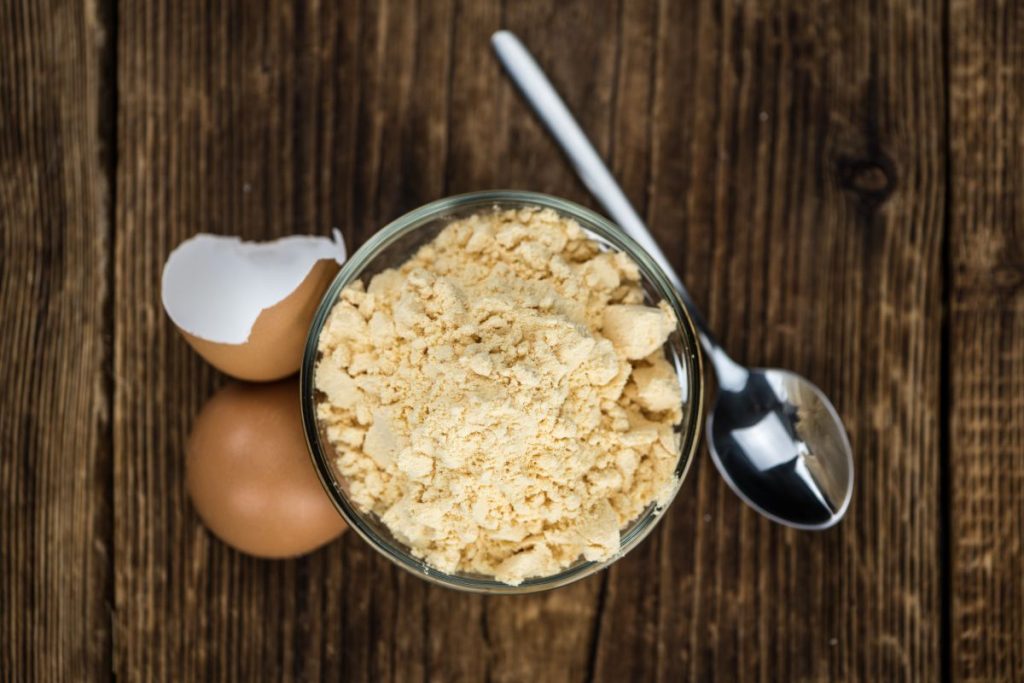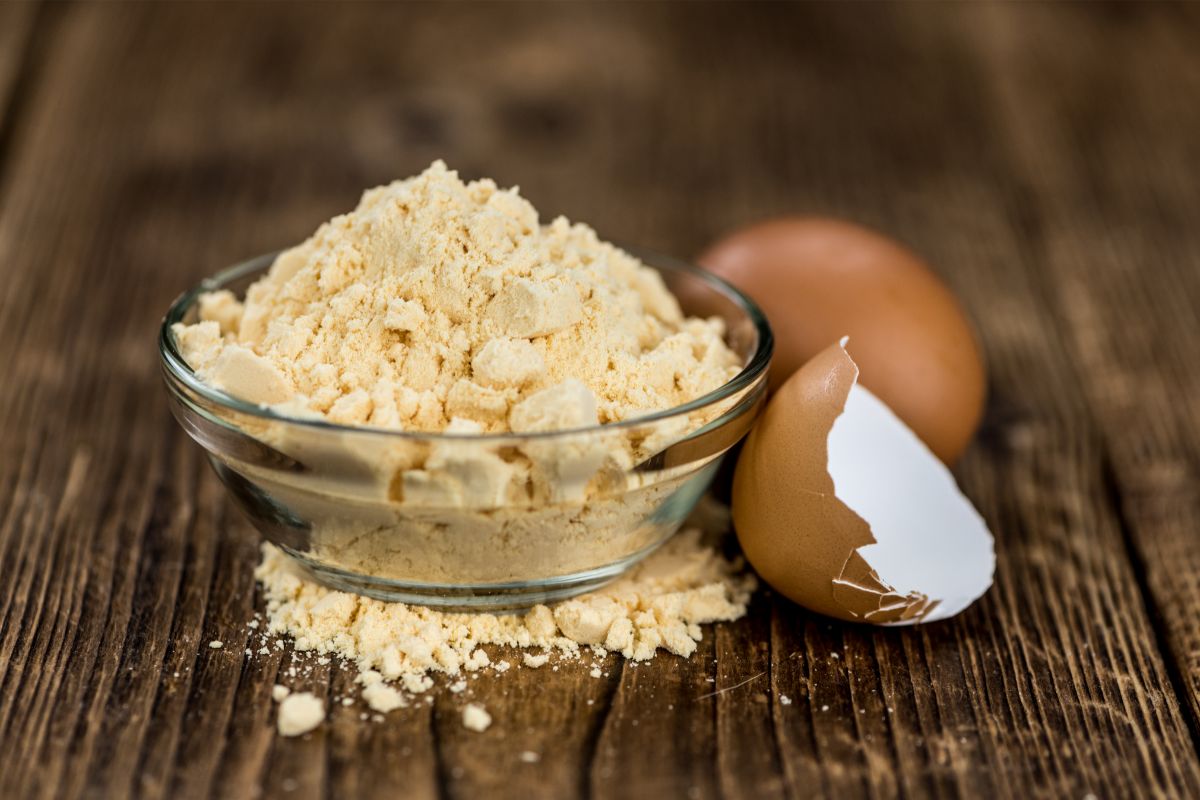To dehydrate eggs, crack them into a bowl and whisk them into a smooth liquid. Cook the eggs in a frying pan into a scramble over medium-low heat. Spread the scrambled eggs onto dehydrator trays in a thin layer, then place them in a food dehydrator at 160°F for 10 hours. Once dried, blend the eggs into a fine powder and store.
Table of Contents
What is the Best Way to Dehydrate Eggs?
The best method for dehydrating eggs is to make scrambled eggs and then dry them using a food dehydrator before grinding them into a fine powder using a coffee grinder, pestle, or food processor. This is the best method because the grinding avoids the slightly grainy texture that pre-cooked dried eggs can sometimes have. Using cooked eggs means the eggs are more versatile after the dehydration process and can be incorporated into backpacking meals and taken on camping trips.

Steps for Dehydrating Eggs in a Food Dehydrator
Dehydrating eggs in a food dehydrator ensures a uniform, safe product:
- Take 10-15 raw eggs and crack them into a bowl. Use a whisk to break apart the yolks and combine them with the egg whites to make a smooth mixture.
- Scramble the eggs in a frying pan on medium-low heat. Use as little added oil as possible, as this can affect the dehydration process. This should take 15 to 20 minutes due to the large volume of eggs and the low heat.
- Once cooked, pour the eggs out onto a dehydrator tray or dehydrator sheet. Aim to spread the eggs out as thinly as possible to reduce the drying time.
- Place the eggs in the food dehydrator set to a temperature of 160°F. Allow the eggs to dehydrate for up to 10 hours.
- When the eggs are completely dry, remove the trays and allow them to cool to room temperature.
- Once cooled, transfer the eggs into a blender or food processor and use the pulse setting to grind the dried eggs into a fine powder.
- Transfer the powdered eggs into a labeled, airtight container and store them in a cool, dark, and dry place.

Is it Safe to Eat Dehydrated Eggs?
Yes, it is safe to eat dehydrated eggs as long as they are cooked first. Raw, fresh eggs can contain salmonella, which is why it is important to cook your eggs to 160°F before consuming them.
If you dehydrate raw eggs, be sure to cook them fully before consuming them to eliminate bacteria and prevent foodborne illness.
Is It Better to Dehydrate Eggs Raw or Cooked?
Whether you want to dehydrate your whole eggs raw or cooked depends on how you plan to use them. Dehydrated raw eggs are rarely grainy, which means a silky texture when they are rehydrated.
However, dehydrating pre-cooked eggs means you don’t have to worry about food contamination, and they don’t have to be cooked later. This makes them more convenient if you plan to use them outdoors.
How Many Eggs Will It Take to Make a Jar of Dehydrated Eggs?
For a quart-sized jar of dehydrated eggs, you must use around 40 large eggs. For a pint-size jar, you will need approximately 20 eggs.

How to Use Dehydrated Eggs
The easiest way to use dehydrated eggs is by reconstituting them before cooking. To do this, mix two tablespoons of water for each tablespoon of egg powder in a bowl and whisk to rehydrate the eggs. You can then use this egg mixture exactly as you would use a freshly cracked egg!
If you are baking, there is no need to rehydrate your eggs – simply add the powder to the dry ingredients before any milk or water is added.
How Long Does It Take to Dehydrate Eggs?
Dehydrating eggs takes 11-12 hours. This includes preparation time, ten hours for drying, and time to allow the eggs to dry and grind them into powder.
How to Store Dehydrated Eggs and Egg Powder
The best way to store dehydrated eggs for long-term storage is in an airtight container in a cool, dark, and dry place. Mason jars or Kilner jars work well for storing dehydrated eggs, especially if you add an oxygen absorber into each jar. For longer-term food storage, use Mylar bags with vacuum seals and store them in a freezer.
How Long Do Dehydrated Eggs Last?
Home-dried eggs have a shelf life of one year. Light, heat, and oxygen will spoil the eggs faster, so try to keep your eggs away from these environmental conditions.
Commercially dried eggs can last for up to 25 years. However, home drying equipment does not have the ability to dry eggs and extend the shelf life to this level.

